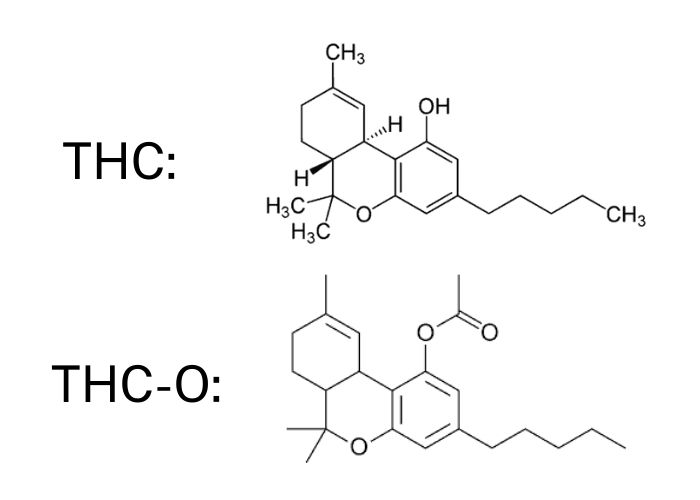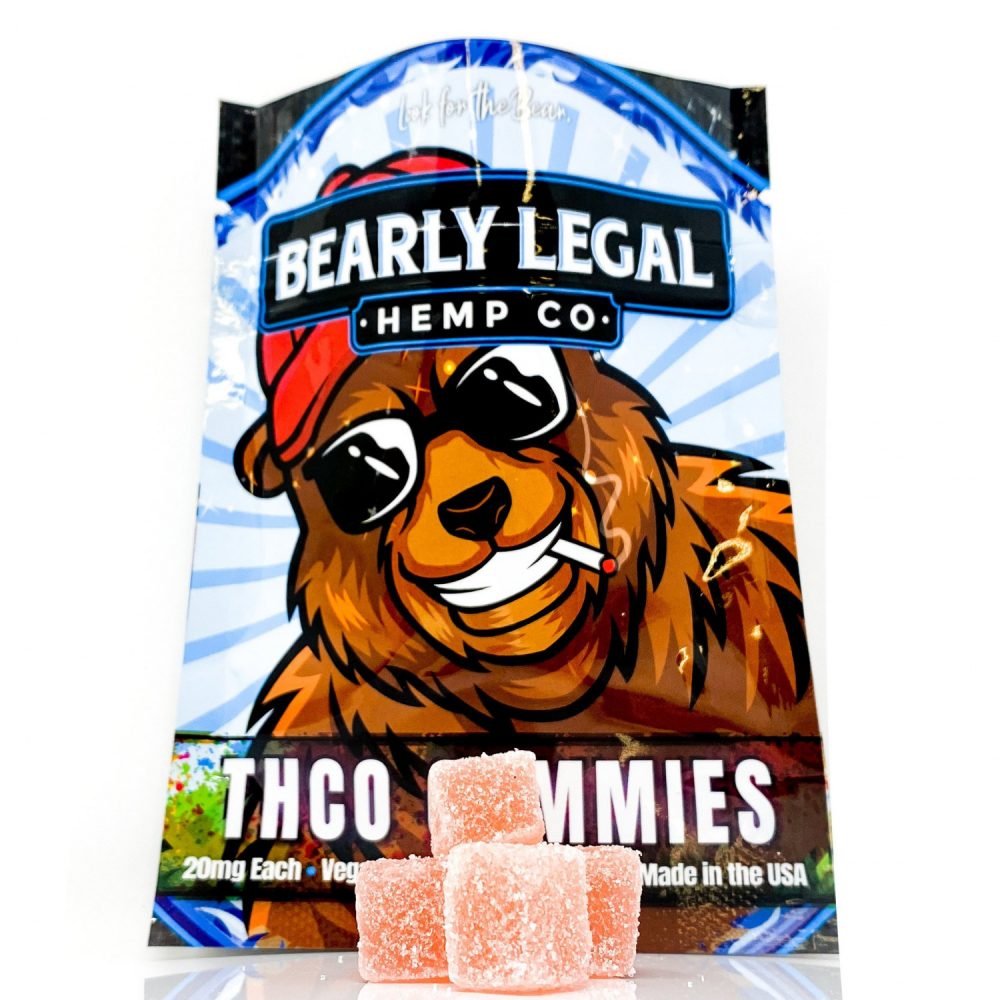Though it has been around since the early 90s, tetrahydrocannabinolic acid (THC-O) only recently found popularity. This is largely due to the fact that THC-O, aka THC-O-acetate, is not a naturally occurring cannabinoid, but rather a synthetic derivative. Nonetheless, it is a cannabinoid that acts upon cannabinoid receptors in your brain, producing effects similar to THC. In fact, research has found it to be roughly 3x stronger than THC.
The potency and legality certainly plays an effect in its recent boost in popularity. But we also have to give credit to the almost 40 states with legalized cannabis and, of course, the 60% of Americans in major cities that consume weed. With cannabis becoming more regularly available and popular in most of the country, but still not available in certain areas, products that contain legal derivatives like THC-O, Delta-8, and Delta-9 are on the rise.
What exactly is THC-O?
Unlike naturally occurring cannabinoids like CBD, THCA, CBGA, and more, THC-O is created in a lab using complex chemistry. It is made by a series of extractions and the additive that makes it synthetic: acetic anhydride. First, CBD is extracted from the hemp plant. Next, Delta-8 is extracted from the CBD. Lastly, the acetic anhydride is added to the Delta-8 making THC-O acetate.
The outcome of the extraction is a heavy brown oil that is comparable in looks to motor oil, or even RSO. This is a highly dangerous process and not recommended to try at home.
Essentially, this compound is an isolated concentrate that is stripped of any terpenes and flavonoids. THC-O is found to have similar effects to traditional THC, but is found to be roughly 3x more potent. It is also assumed that the effects may not vary as much as THC products due to the lack of terpenes.
THC-O can be found in similar forms to other cannabinoid products. It can be consumed as tinctures, edibles, and vape cartridges. It is said that it takes about 20 to 30 minutes to kick in.
THC verse THC-O

Is THC-O Safe?
With the lack of research and regulations about THC-O, is is unclear whether this compound is safe or not. Though in terms of potency alone, this product might prove unpleasant for inexperienced cannabis consumers. Either way, because of the lack of regulations, any THC-O product on the market is not guaranteed to be safe and of quality. Even with quality and safe THC-O, the product most likely contains unsafe additives. With that being said, we advise you to proceed with caution.
If you’re using low-quality extract material and low-quality reagents you bought online from Alibaba or whatever, you’re likely to get way less pure of a product than if you’re using clean [and pharmaceutical-grade] reagents and do a lot of downstream purification steps. We just don’t know [what happens], but you can’t run around saying any of this stuff is safe.
James Stephens, cannabis researcher and chemist, via Leafly
Is THC-O Legal?
THC-O is legal, but it also depends who you ask. Because it is derived from federally legal hemp plants, it is technically legal under the farm bill. However, it is certainly a gray area. Some experts say that it is not legal under the 1986 Federal Analogue Act. This states that any substance that is an analogue to a Schedule I drug, which THC is, would also be considered a Schedule 1 drug.
The issue with the Analogue Act argument is that there is no clear line between “analogous” versus “non-analogous”; meaning it would also include compounds like Delta-8 and even CBD.
Producers of THC-O and companies that sell cannabis derived products are aware of this gray area and certainly operate with caution. One company that sells these products is even named Bearly Legal Hemp Company.

THC-O Gummies by Bearly Legal Hemp
Conclusion
THC-O seems to exist within a gray legal space between federally legal hemp and cannabis, the latter of which is not federally legal yet. With state regulators and legislators cracking down on the legality of similar compounds, it is unclear how long THC-O may be around. Because of the lack of regulations, consumers are encouraged to make educated decisions before considering products containing THC-O.
More Cannabis Content
CANNABIS CONSUMPTION LOUNGES IN NEVADA SLATED TO OPEN AS SOON AS 2022
CAN YOU OVERDOSE ON CBD GUMMIES? EFFECTS OF TAKING TOO MUCH CBD
BROOKLYN’S MEDGAR EVERS COLLEGE TO OFFER CANNABIS MINOR DEGREE
8 BEST CANNABIS FRIENDLY TRAVEL DESTINATIONS IN THE US IN 2021
WHEN SHOULD YOU TAKE CBD? A GUIDE TO DOSING DURING THE DAYTIME








